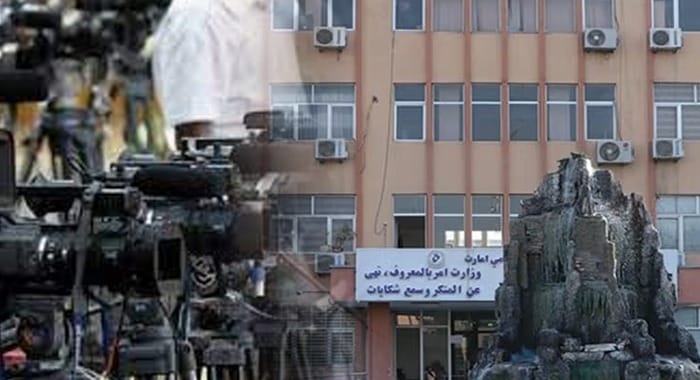In yet another display of its authoritarian rule and blatant disregard for human rights, the Taliban has detained the editor-in-chief of the Tawana news agency, accusing him of receiving foreign funds and producing content critical of the regime.
According to a statement from the Ministry for the Propagation of Virtue and Prevention of Vice – the Taliban’s notorious organ of repression – the journalist allegedly received financial support from UNAMA, UNESCO, and the Islamic Republic of Iran. The group claims the funds were used to “bring women out of their homes under the pretext of work” and to produce “negative reports” about the Taliban government.
Taliban officials further accused the editor of espionage and moral corruption, alleging he secretly submitted reports to “anti-Islamic media outlets” in exchange for money. A video of his purported confession was released – a tactic human rights observers note is frequently linked to torture, intimidation, and coerced admissions in Taliban custody, which carry no credibility under international law.
The regime also branded the media outlet as a “centre for foreign espionage and moral corruption”, while offering no independent evidence to substantiate its sweeping claims. Additional allegations included promoting gender mixing, distributing “harmful” religious texts, and attempting to undermine the regime through media reporting.
Daricha, a Taliban-affiliated outlet, reported that others linked to similar organisations have also been detained, though no details were provided. This pattern reflects the Taliban’s broader strategy of silencing dissent by criminalising basic press activity and targeting anyone linked to international organisations or women’s initiatives.
The Ministry of Propagation of Virtue, which wields unchecked authority as police, prosecutor, and judge, has become the spearhead of systematic repression, particularly against women, activists, and journalists.
In recent weeks, the Taliban’s crackdown on media has intensified sharply. The Afghanistan Journalists Centre reports that at least seven journalists have been detained in Kabul and other provinces in the past three weeks, with a total of 15 media workers now in Taliban custody.
Since seizing power in August 2021, the Taliban has dismantled Afghanistan’s fragile media landscape, imposing draconian restrictions on free expression, shutting down outlets, and routinely arresting, threatening, and torturing journalists under vague allegations of espionage or moral misconduct.
International human rights and press freedom organisations have condemned the Taliban’s actions as clear violations of international law and fundamental human rights, calling for the immediate release of all detained journalists and the restoration of media freedoms in Afghanistan.





